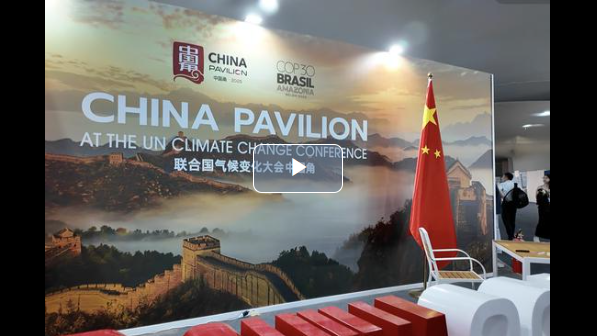Insights丨How an African economist saw China anew at COP30

点击图片查看
By Chen Tianhao
(ECNS) -- Deep in the dense forests of the Amazon, the world is searching for a shared answer to address the climate issue. Extreme weather events are intensifying, development in the Global South remains constrained, and the global political landscape is undergoing rapid transformation. The COP30 being held in Belém in northern Brazil becomes more than a climate conference, but also an occasion to reconsider the relationship between humanity and nature. During an exclusive interview with China News Network, Andrea Mjuma, Chief Economist at Malawi’s Ministry of Finance & Economic Planning, spoke about his reflections in the Amazon and why he believes China is emerging as an indispensable force in global climate governance.
In Malawi, floods, droughts, and extreme weather are no longer seasonal disruptions but fundamental challenges that are hindering the nation’s development. Mjuma noted that while the world is facing climate impacts together, the burden on extremely poor countries is far heavier.
“We’re experiencing floods, droughts, and increasingly intense climate events,” he said. “Extreme poverty means we lack not only the resources to develop our economy, but even the capacity to protect our natural resources.”
When discussing partnerships, Mjuma repeatedly pointed to China’s concrete contributions. China’s achievements in biodiversity restoration, forest recovery, and ecological governance, he said, are not just words, but real action. He called China a trusted partner, emphasizing its ability to provide both financing and technology to the Global South.
He highlighted the value of the G77+China framework, calling it a crucial collective platform. “We believe that moving forward with G77+China will not only grow our economies,” he said, “but also keep us moving together.”
For him, China’s leadership and practical engagement give developing countries a stronger, more unified voice.
Mjuma stressed that climate change is “a global enemy” and that no nation, including Malawi, can face it alone. He argued that the world must move toward unity rather than division: “We are not here to fight America,” he said as he talked about America’s walking out of the Paris Agreement, “We are here to demonstrate that only through cooperation can we address climate change successfully.”
The setting of COP30 in the Amazon reinforced his belief in coexistence between humans and nature. He referenced China’s philosophy “Green is gold.”, which he thinks is not a slogan but a blueprint for a new global climate governance culture: one where solidarity replaces isolation and collective strength overcomes a shared crisis.
- 2025-11-23引众怒!高市早苗个人账号评论区批评声不断
- 2025-11-23一线Vlog@约翰内斯堡|聆听G20峰会上的声音
- 2025-11-23【2025打卡中国】古韵新潮出圈出海 宝藏洛阳狠狠“拿捏”多国网红博主
- 2025-11-23【2025打卡中国】一朵花兴盛一个产业 洛阳让埃及网红博主努兰惊喜

 西北角
西北角 中国甘肃网微信
中国甘肃网微信 微博甘肃
微博甘肃 学习强国
学习强国 今日头条号
今日头条号











